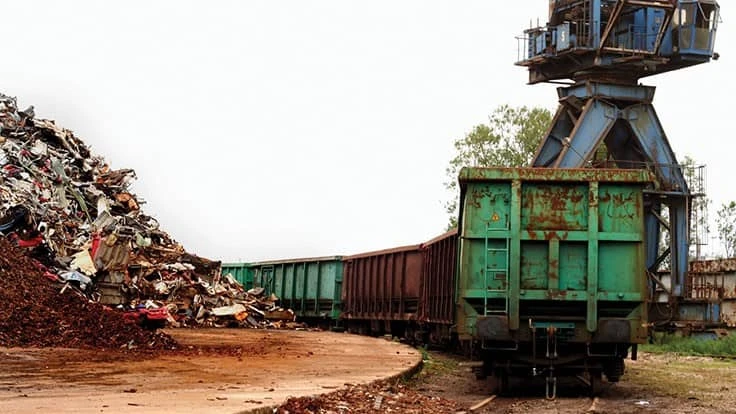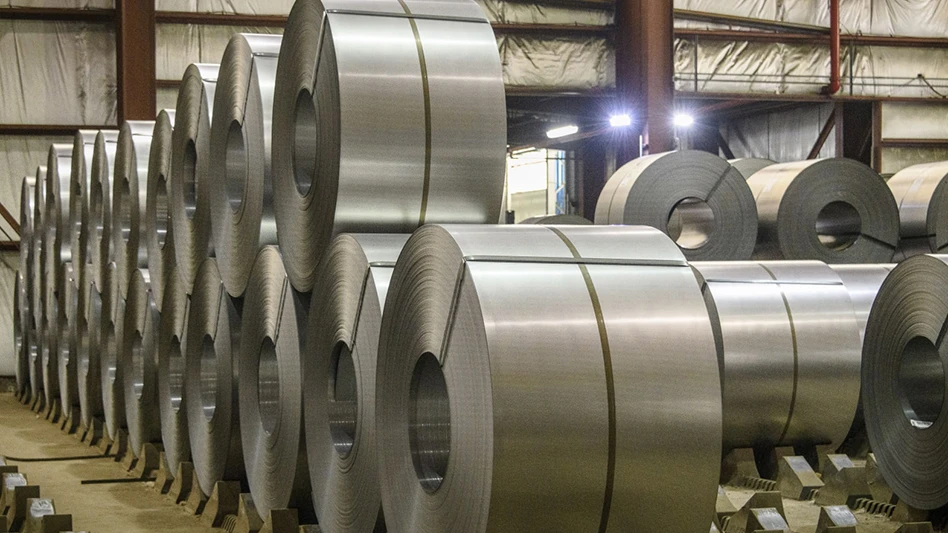
Photo provided by Adobe Stock.
The Washington-based Institute of Scrap Recycling Industries (ISRI) is calling a late April ruling by the federal Surface Transportation Board (STB) “a major win for the scrap industry.” ISRI has been making a case that railroad operators had been placing “excessive demurrage charges” and providing “inconsistent rail service” to recyclers who ship by rail.
“Following a hard-fought battle, scrap recyclers won a major victory toward improving the nation’s rail network for shippers and railroads alike,” states ISRI. “In a series of decisions, the STB rebuked the railroads for unreasonable practices combined with nontransparent, inaccurate billing and an unfair dispute resolution process.”
Adds ISRI, “The decisions come after years of public comments, testimony, outreach on Capitol Hill and other advocacy efforts by ISRI and its members.
Billy Johnson, chief lobbyist for ISRI, says, “Unreasonable practices by railroads have cost the scrap recycling industry tens of millions of dollars annually, and caused interruptions in the manufacturing supply chain. ISRI and its members fought for a level playing field and to have their voices heard, and won. The recycling industry appreciates the STB providing an avenue to address our concerns and taking reasonable measures to correct the behavior of the railroads.”
Following the implementation of an operational method called precision schedule railroading (PSR) at the start of 2019 by several Class 1 railroads, shippers began facing increased demurrage charges “hundreds of times larger than in previous years,” says ISRI. (Class 1 railroads operating in the United States include BNSF Railway Co., CSX Transportation, Grand Trunk Corp. [part of Canadian National], Kansas City Southern Railway, Norfolk Southern, Soo Line Corp. [part of Canadian Pacific] and Union Pacific Railroad.)
In some instances, demurrage charges increased from 600 to 1,000 percent year over year, ISRI says. Additionally, shippers had “no realistic way to challenge these demurrage charges because the railroads maintained inaccurate and confusing billing information,” the association adds.
Based on the late April STB decisions, railroads must develop more accurate billing, reliable and reasonable practices to avoid demurrage charges and make it easier for shippers to challenge those charges, according to ISRI.
“The STB’s rulings will allow for a better and more fair partnership between recyclers and railroads,” Johnson says. “When issues do occur, there will be a fair way to resolve disputes. This ensures that valuable commodity-grade scrap materials will consistently be delivered to manufacturers for the use in new everyday products.”
Latest from Recycling Today
- BlueScope, BHP & Rio Tinto select site for electric smelting furnace pilot plant
- Magnomer joins Canada Plastics Pact
- Electra names new CFO
- WM of Pennsylvania awarded RNG vehicle funding
- Nucor receives West Virginia funding assist
- Ferrous market ends 2024 in familiar rut
- Aqua Metals secures $1.5M loan, reports operational strides
- AF&PA urges veto of NY bill





